
Newsletter Subscribe
Enter your email address below and subscribe to our newsletter

Enter your email address below and subscribe to our newsletter
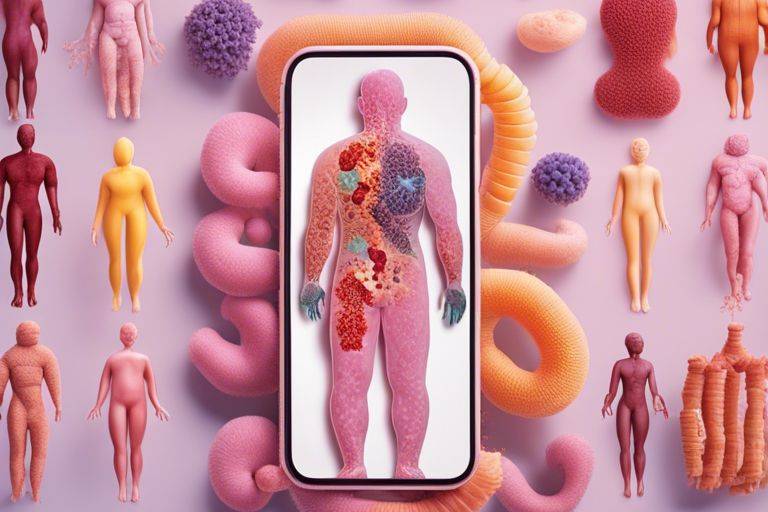
Most of us are unaware of the powerful impact that our gut microbiome has on our overall health. In this blog post, I will examine into the intriguing world of gut bacteria and how they influence everything from digestion to mental health. By understanding how to nurture and balance our gut microbiome, we can unlock the key to improved well-being and vitality. Join me on this journey to uncover the secrets that lie within your gut!
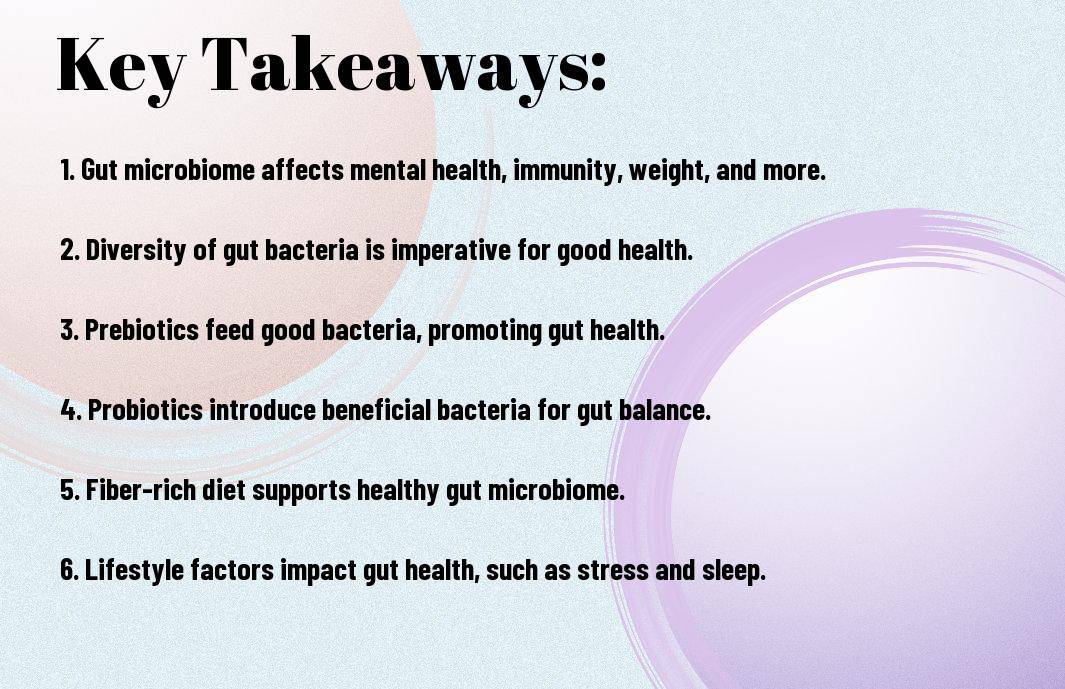
A mysterious universe exists within each of us – our gut microbiome. Composed of trillions of bacteria, viruses, and fungi, this complex ecosystem plays a crucial role in our overall health.
On the surface, gut health may seem insignificant, but its impact is profound. Your gut microbiome influences digestion, immune function, mood, and even weight management.
Within this hidden world, lies a delicate balance that can tip towards either health or disease. Imbalances in the gut microbiome have been linked to conditions like obesity, autoimmune diseases, and mental health disorders. It’s important to nourish this internal environment through a diverse diet rich in fiber and fermented foods.
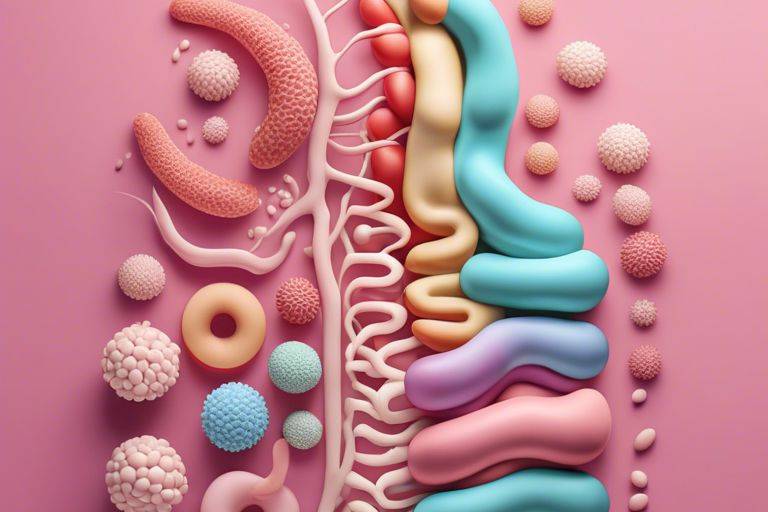
Some fascinating research has shown that the gut microbiome can influence our brain function and even our mood. The communication between the gut and the brain is bidirectional, known as the gut-brain axis.
The gut microbiome plays a crucial role in breaking down food, extracting nutrients, and aiding in digestion. These microbes help ferment fiber, produce vitamins, and regulate the immune system.
Understanding the complexities of the gut microbiome reveals that the diverse community of microbes living in our digestive system is imperative for maintaining overall health and well-being. These microbes not only impact digestion but also play a role in various physiological processes that can influence our health outcomes.
An imbalanced gut microbiome has been linked to a range of chronic diseases, including obesity, diabetes, and inflammatory conditions. The composition of your gut microbiome can have a profound effect on your susceptibility to these health issues.
Impactful studies have shown that an unhealthy gut microbiome can contribute to a host of chronic diseases, underscoring the importance of maintaining a diverse and balanced microbial community in your gut. Imbalances in the gut microbiome have been associated with increased inflammation, insulin resistance, and metabolic disorders, highlighting the crucial role these microbes play in our overall health.
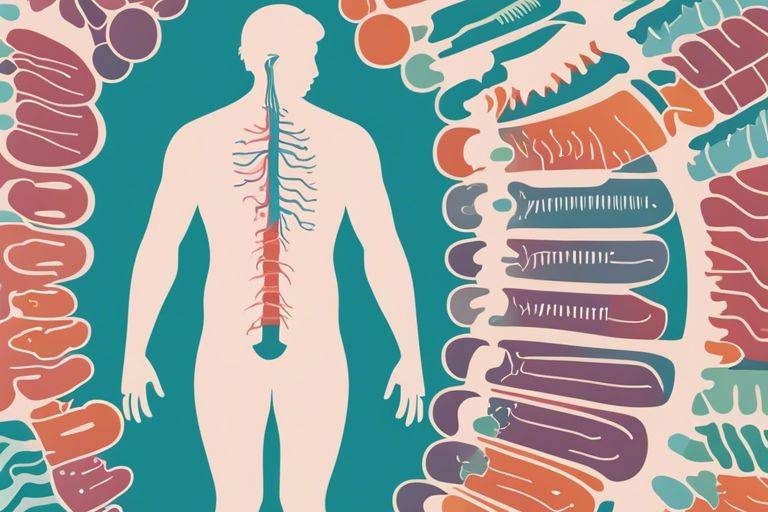
Keep in mind that several factors can influence your gut microbiome, impacting your overall health and well-being. These factors include
After considering these factors, you can make informed decisions to optimize your gut health.
Any dietary choices you make can significantly impact the composition of your gut microbiome. Eating a diverse range of fruits, vegetables, whole grains, and fermented foods can promote a healthy gut flora, while a diet high in sugar and processed foods can negatively affect it.
Lifestyle choices such as exercise, stress management, and sleep can also influence your gut microbiome. Regular physical activity, stress-reducing techniques like meditation, and prioritizing restful sleep can all contribute to a balanced and diverse gut microbiota.
Microbiome disruption can also occur due to exposure to environmental toxins such as pesticides, heavy metals, and pollutants. These can alter the composition of gut bacteria and have detrimental effects on overall health.
After acknowledging the impact of these factors on your gut microbiome, you can take proactive steps to nurture a healthy and diverse gut flora.
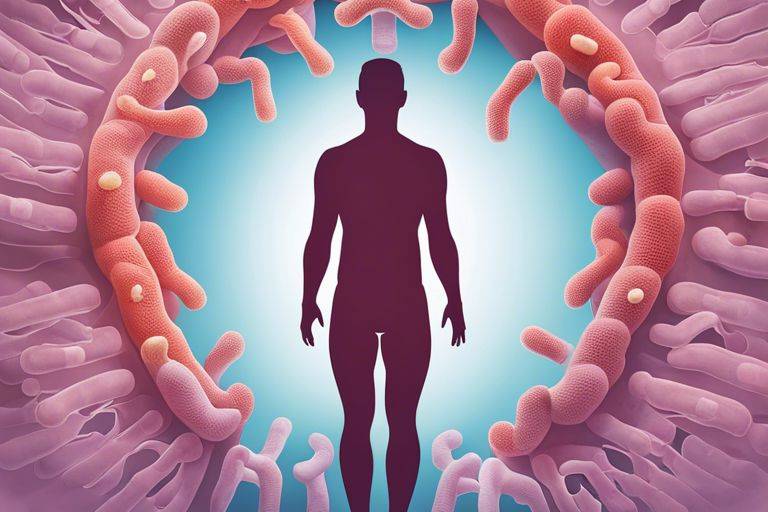
After reading “Unlocking Wellness: The Good Gut Guide by Stanford Researchers Reveals the Secrets of Microbiota”, I researchd into the fascinating world of gut microbiome analysis. This field of study has revolutionized our understanding of the intricate ecosystem within our bodies.
An imperative tool in deciphering the secrets of your gut microbiome is DNA sequencing and microbiome profiling. This process involves analyzing the genetic material of the microorganisms in your gut to identify the diversity and abundance of different species present.
Microbiome analysis provides valuable insights into the balance of bacteria in your gut and how it impacts your overall health. Understanding your test results can uncover potential imbalances that may be contributing to a range of health issues, from digestive problems to inflammation and even chronic conditions. Consult with a healthcare provider or a nutritionist to interpret and take action based on your results.
To optimize your gut health, incorporating probiotics and prebiotics into your diet is key. Probiotics are beneficial bacteria that support gut health, while prebiotics are indigestible fibers that nourish these friendly bacteria. Consuming foods like yogurt, kefir, sauerkraut, and bananas can help maintain a healthy balance of gut flora.
An imperative component of a healthy gut microbiome is the consumption of fermented foods and drinks. These include kimchi, kombucha, miso, and tempeh, which are rich in probiotics and enzymes that aid digestion. These foods can help improve the diversity and abundance of beneficial bacteria in your gut, promoting overall well-being.
Prebiotics play a crucial role in managing stress levels, as stress can disrupt the balance of gut bacteria. Including prebiotics like garlic, onions, asparagus, and oats in your diet can nourish the good bacteria in your gut and reduce inflammation linked to stress. Additionally, practices like mindfulness, meditation, and deep breathing can help alleviate stress and support a healthy gut microbiome.
Trends in gut microbiome research are continually evolving, with scientists uncovering new insights into the intricate relationship between our gut bacteria and overall health. Breakthroughs in technology, such as advanced sequencing techniques and artificial intelligence, are allowing researchers to examine deeper into the complexities of our gut microbiome.
An exciting aspect of gut microbiome research is its potential applications in medicine. Understanding the connections between specific bacterial profiles and various health conditions could pave the way for personalized treatment strategies. Imagine a future where precision medicine harnesses the power of the gut microbiome to tailor therapies that are highly effective and tailored to an individual’s unique microbial ecosystem.
Presently, understanding the mysteries of your gut microbiome is crucial for overall health and wellness. Learning about the trillions of microbes living in your gut can provide valuable insights into digestion, immunity, and even mental health. By unlocking the secrets of your gut microbiome, you can make informed decisions to improve your well-being and lead a healthier life.
A: The gut microbiome refers to the complex community of microorganisms that live in your digestive tract, including bacteria, viruses, fungi, and other microbes.
A: The gut microbiome plays a crucial role in digestion, nutrient absorption, immune function, and overall health. It can also impact your mood, weight, and risk of certain diseases.
A: You can improve the health of your gut microbiome by eating a diverse range of fiber-rich foods, including fruits, vegetables, whole grains, and legumes. Fermented foods like yogurt, kefir, and kimchi can also support a healthy gut microbiome.
A: Yes, emerging research suggests that the gut microbiome may play a role in mental health conditions like anxiety, depression, and stress. The gut-brain axis is a communication system between the gut and the brain that influences mood and behavior.
A: Factors like antibiotics, a diet high in processed foods and sugar, chronic stress, lack of sleep, and certain medications can disrupt the balance of the gut microbiome and lead to dysbiosis, or an imbalance of gut bacteria.
A: You can get insights into the health of your gut microbiome through tests like stool analysis, which can measure the diversity and abundance of bacteria in your gut. Companies like Viome, uBiome, and Thryve offer gut microbiome testing kits.
A: Yes, you can improve the diversity of your gut microbiome by consuming a variety of plant-based foods, minimizing processed foods and sugar, managing stress, getting regular exercise, and prioritizing sleep. Probiotics and prebiotics can also help support a diverse gut microbiome.